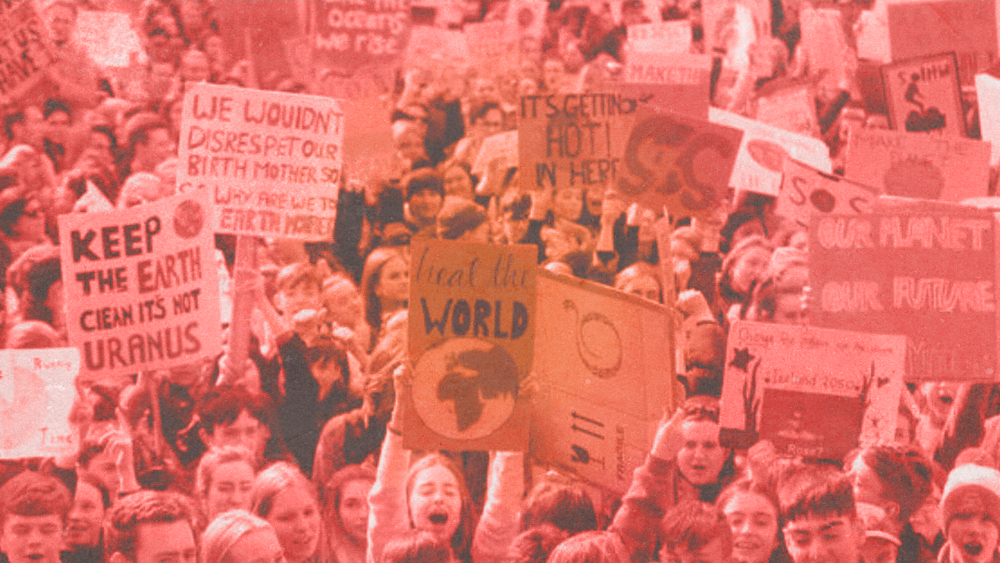Feminine emancipation is now no longer an end in itself but is considered to be the means to stop the destruction of the planet
If linking ecology and women’s emancipation was a revolutionary idea in the 1970s, today it is a widespread idea, and there is no movement that has not at some point supported its ideas with concepts developed within the framework of ecofeminism.
Who were the main founders of ecofeminism, what were they defending and what are ecofeminists defending now?
Although Rachel Carson and her 1962 book Silent Spring, in which she denounced the harmful effects of pesticides on the environment, are an undeniable reference and a milestone for the environmental movement, ecofeminism emerged with Françoise d’Eaubonne, the French feminist who was a student of Marie Curie, one of the rare women to study science at university at the time.
Inspired by revolutionary relatives and by reading Simone de Beauvoir in the late 1940s, she co-founded the Women’s Liberation Movement in the 1960s, defending, among other things, the women’s rights to abortion and to control fertility.
It was in the context of this movement that she created the group Ecology and Feminism, which would come to be at the origin of the term ecofeminism: a current of thought that relates ecology to feminism.
Feminine emancipation is now no longer an end in itself but is considered to be the means to stop the destruction of the planet. Thus, since the 1970s, ecofeminism has taken shape, with fundamental contributions that have also arrived from the USA, namely that of Ynestra King, founder of the Women and Life on Earth project.
The feminist and researcher made even clearer the power relations and domination that large companies – created in a patriarchal society – impose on nature and how much women can contribute to changing this logic.
Carolyn Merchant is another of the main voices coming from the US to make ecofeminism an increasingly autonomous and recognised discipline. Conducting a cultural and historical analysis of the relationship between women and nature, Carolyn Merchant calls for the liberation of women and nature through environmental activism, a tool of resistance to what she calls “male technology”.
Decades after these activists, researchers and thinkers, among many others left unmentioned, built the basis of thought for the plurality of currents of ecofeminism, each defending a more or less feminist, radical vision, today we have a sense of contagion with this word.
Ecofeminists were among the first to point to the omnipresence of discrimination and its interconnection with patriarchy and capitalism, as two dominant systems. Just as it is normalised to oppress Mother Earth, it is legitimised to catcall women as chicks, or fish (in some languages). This thus downgrades both women and non-human animals, lowering them to the level of instrumentalisation and sensory desire.
Even more, ecofeminists, and ecofeminism as a theory, largely evolved into queer-ecology. First wave ecofeminists encountered some critiques as being essentialist instead of focused on the constructivist and fluid manner of nature and society. However, it’s on us if we want to ‘reclaim’ constructivism, or let the symbolism evolve into queer-ecology. The term is, probably, less important, as we are in it for the common struggle of total liberation.
We need to break the cycle of oppression – all at once. Dismantling the hierarchies is at the centre of our fight, instead of taking it item by item, in a single-issue manner.
We are ecofeminists because we defend the planet and we defend not only gender equality, but the positive effects that gender equality and women’s emancipation have on the defence of the planet.
We are ecofeminists because we want to break with the patriarchal power relations imposed on all living beings.
We are ecofeminists because through ecofeminism we achieve social and climate justice.
We are ecofeminists because by liberating ourselves, we liberate our planet from its worst fate.
Do you want to be informed of DiEM25's actions? Sign up here















